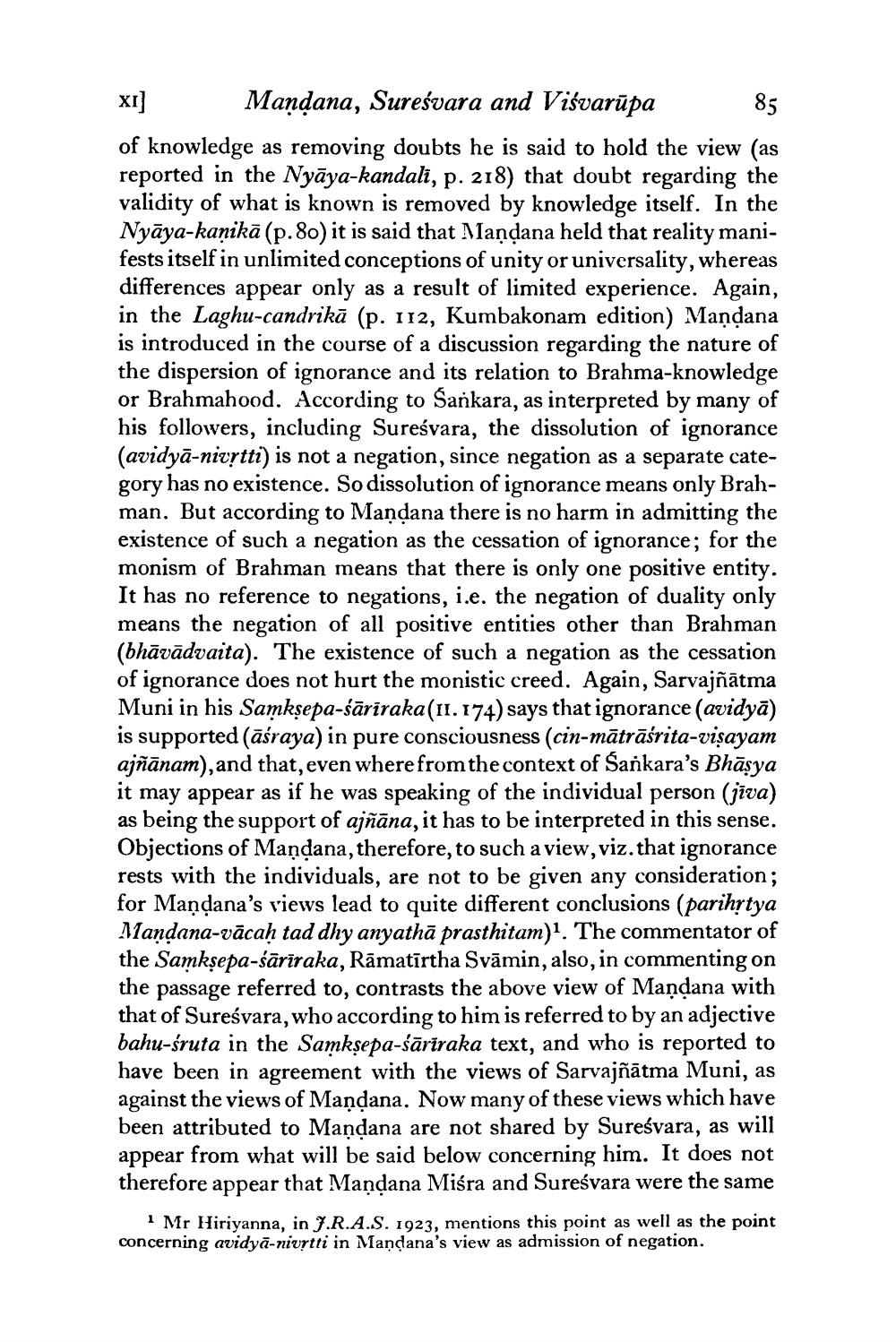________________
x] Mandana, Sureśvara and Viśvarūpa 85 of knowledge as removing doubts he is said to hold the view (as reported in the Nyāya-kandali, p. 218) that doubt regarding the validity of what is known is removed by knowledge itself. In the Nyāya-kanikā (p.80) it is said that Mlandana held that reality manifests itself in unlimited conceptions of unity or universality, whereas differences appear only as a result of limited experience. Again, in the Laghu-candrikā (p. 112, Kumbakonam edition) Mandana is introduced in the course of a discussion regarding the nature of the dispersion of ignorance and its relation to Brahma-knowledge or Brahmahood. According to Sankara, as interpreted by many of his followers, including Sureśvara, the dissolution of ignorance (avidyā-niortti) is not a negation, since negation as a separate category has no existence. So dissolution of ignorance means only Brahman. But according to Mandana there is no harm in admitting the existence of such a negation as the cessation of ignorance; for the monism of Brahman means that there is only one positive entity. It has no reference to negations, i.e. the negation of duality only means the negation of all positive entities other than Brahman (bhāvādvaita). The existence of such a negation as the cessation of ignorance does not hurt the monistic creed. Again, Sarvajñātma Muni in his Samksepa-śārīraka(11. 174) says that ignorance (avidyā) is supported (āśraya) in pure consciousness (cin-mātrāśrita-visayam ajñānam), and that, even where from the context of Sankara's Bhāsya it may appear as if he was speaking of the individual person (jīva) as being the support of ajñāna, it has to be interpreted in this sense. Objections of Mandana, therefore, to such a view, viz.that ignorance rests with the individuals, are not to be given any consideration; for Mandana's views lead to quite different conclusions (parihrtya Nlandana-vācaḥ tad dhy anyathā prasthitam)". The commentator of the Samkṣepa-śārīraka, Rāmatīrtha Svāmin, also, in commenting on the passage referred to, contrasts the above view of Maņdana with that of Sureśvara, who according to him is referred to by an adjective bahu-śruta in the Samksepa-śārīraka text, and who is reported to have been in agreement with the views of Sarvajñātma Muni, as against the views of Mandana. Now many of these views which have been attributed to Maņdana are not shared by Sureśvara, as will appear from what will be said below concerning him. It does not therefore appear that Mandana Misra and Sureśvara were the same
1 Mr Hiriyanna, in 7.R.A.S. 1923, mentions this point as well as the point concerning avidyā-nivrtti in Mandana's view as admission of negation.




